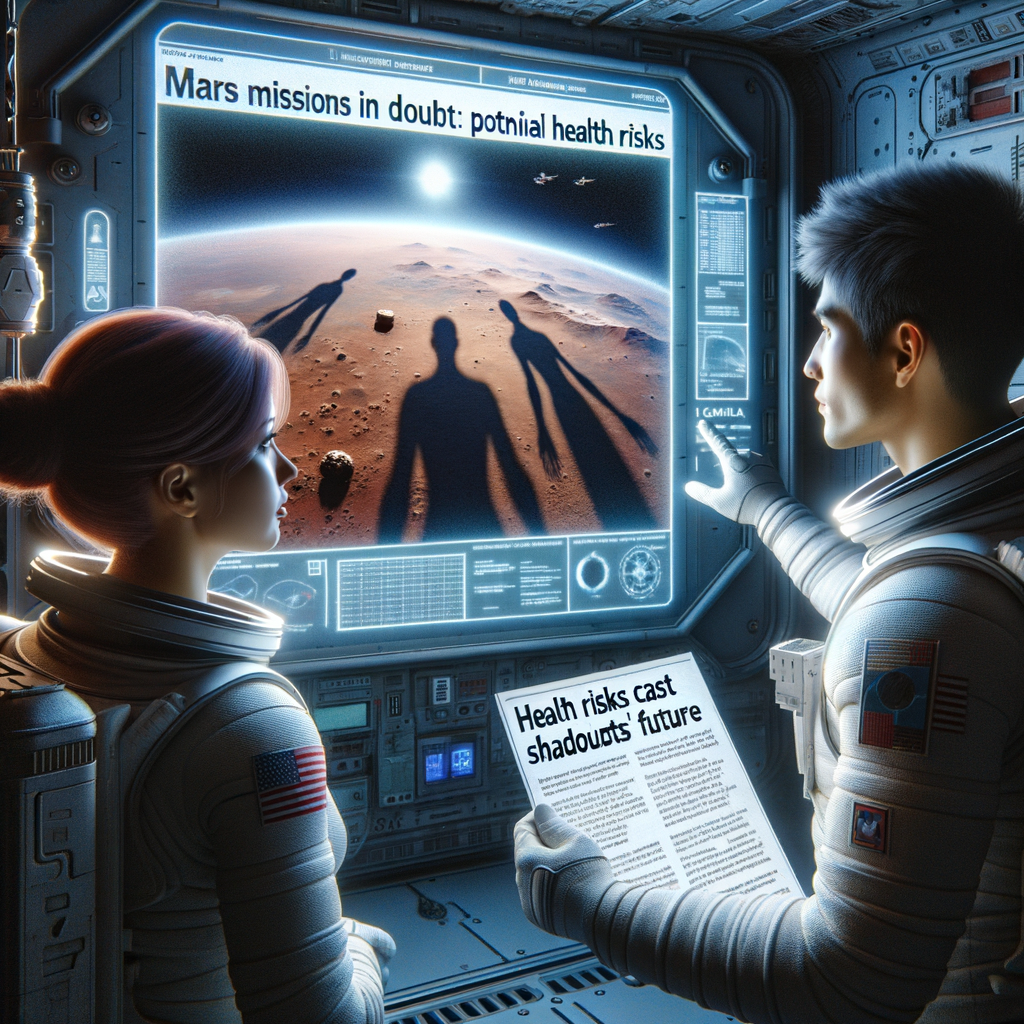
Introduction
A recently discovered physiological phenomenon poses significant challenges to the long-term viability of human missions to Mars. Astronauts traveling to the Red Planet would be subjected to an extended period of microgravity, which has been found to have detrimental effects on the human body.
The Effects of Microgravity on the Human Body
Microgravity refers to the environment in space where the gravitational force is significantly reduced or absent. When humans spend extended periods in microgravity, their bodies undergo a series of physiological adaptations. These include:
- Muscle atrophy: The absence of gravity reduces the load on muscles, leading to a loss of muscle mass and strength.
- Bone density loss: Microgravity inhibits bone formation and promotes bone resorption, resulting in a decrease in bone density and an increased risk of fractures.
- Cardiovascular deconditioning: The reduced gravitational force on the cardiovascular system leads to decreased blood volume, reduced heart rate, and impaired circulation.
- Immune system suppression: Microgravity weakens the immune system, increasing susceptibility to infections and diseases.
- Cognitive impairments: Prolonged exposure to microgravity has been shown to affect cognitive function, including attention, memory, and executive function.

Challenges for Human Missions to Mars
The physiological effects of microgravity pose significant hurdles to human missions to Mars. The travel time to Mars is approximately nine months, and astronauts would spend an additional year or more on the planet’s surface. This prolonged exposure to microgravity could severely compromise the health and performance of the crew.
- Muscle atrophy and bone density loss: The loss of muscle and bone strength would make it difficult for astronauts to perform strenuous tasks, such as constructing habitats or conducting scientific experiments. It could also increase the risk of falls and injuries.
- Cardiovascular deconditioning: Impaired cardiovascular function could lead to fatigue, dizziness, and fainting. It could also increase the risk of heart attacks or strokes.
- Immune system suppression: A weakened immune system would make astronauts more susceptible to infections, which could become life-threatening in the harsh environment of Mars.
- Cognitive impairments: Reduced cognitive function could affect astronauts’ ability to make decisions, solve problems, and respond effectively to emergencies.
Mitigation Strategies and Future Research
Scientists and engineers are actively working on developing strategies to mitigate the effects of microgravity on astronauts. These include:
- Exercise regimens: Regular exercise can help maintain muscle mass and strength in microgravity.
- Artificial gravity: Simulating gravity on spacecraft using centrifugal force could prevent muscle and bone loss.
- Pharmacological interventions: Medications may be able to counteract some of the negative effects of microgravity on the body.
- Nutritional supplements: Special diets can help maintain bone density and immune function in microgravity.
Further research is needed to fully understand the long-term effects of microgravity on the human body and to develop effective mitigation strategies. Long-duration space missions, such as the planned Artemis missions to the Moon, will provide valuable data for researchers.

Implications for Human Exploration
The discovery of the detrimental effects of microgravity on astronaut’s bodies raises serious doubts about the feasibility of long-term human missions to Mars. While mitigation strategies are being developed, the challenges are significant and require careful consideration.
If these challenges cannot be overcome, it may be necessary to rethink the scope and timeline for human exploration of Mars. One possibility is to limit missions to shorter durations or to consider a permanent habitat on the Moon as a stepping stone to Mars.
Conclusion
The recent discovery of the negative effects of microgravity on the human body represents a major setback to the prospect of human missions to Mars. While scientists and engineers are working on mitigation strategies, the challenges are formidable and require further research. The future of human exploration beyond Earth’s immediate orbit remains uncertain and hinges on our ability to overcome the physiological barriers posed by microgravity.









